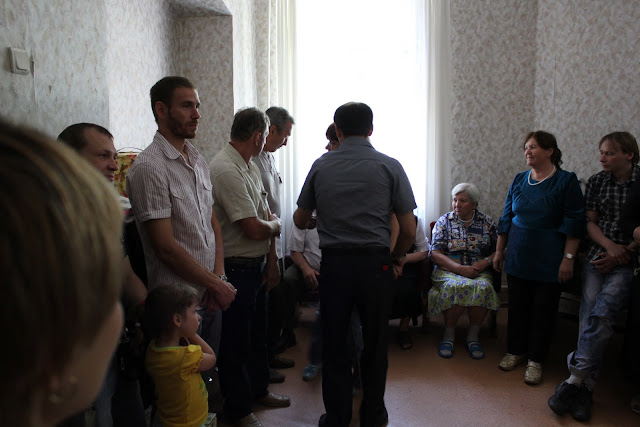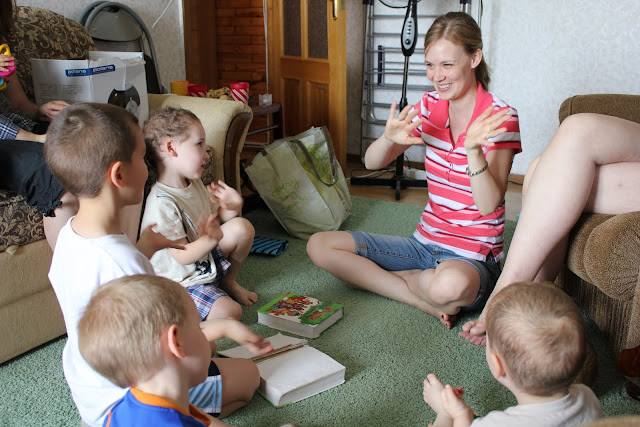Hello everyone! We flew into Ukraine today!
We are finished with our three-week stay in Poland. We did this in between Romania and Ukraine because this would be a great time for us to reflect on what we learned in Romania and be better mentally, physically, and spiritually prepared for a new country with a different language - Ukraine!
We are also jumping into the farming world because we really believe that the concept of living in the country, raising crops and animals, and living peacefully with a good relationship with Jesus would be a really, really good thing for orphans - which often grow up in small, crowded homes. But before we can start making ideas of how to start something like this, we really needed to do it ourselves, to get into the farming world, and see what living on a small farm is like. (See previous blog's video)
We are really, really convinced that abandoned children should grow up in this kind of environment, because it will give a tremendous sense of self-confidence and independence. Going into a small stable with a huge horse is a bit scary at first, but once you've done it a few times, you aren't afraid of horses anymore. Same goes for putting a chain leash on a big billy goat. Same goes with planting seeds and knowing that fruit will come forth if you take care of it. Even pulling weeds, which we did often, is rewarding once you see the clean soil and only the fruitful plants intact. It gave us self-confidence that we didn't have before, and how much more will it mean to children who might think that they are stupid or worthless - for them to experience interaction with animals and be a part of something meaningful?
Thinking of ideas is the easy part.
The hard part is: where are the deaf orphans? Are we able to legally take them out of the foster care/orphanage system and place them into better homes/farms)? If so, how difficult will this process be, and how long will it take? How much will it cost to buy/rent land, build or renovate the place, feed/educate the children, and ensure that they will have a good future? Is adoption an option, and how long is the process?
Those all are the questions that we want to tackle as we approach Ukraine. Those are also challenges that we are starting to understand in Romania.
Let's get to the best part of the blog! Enjoy the pictures of farming, and picture what it would be like if any child is able to experience this on a daily basis.
 |
| Sorry for the poor image quality - taken with iPod touch and in low light - but this is Roma, the adorable 7 year old daughter of Mirek and Diewuke, our farm hosts! |
 |
| Snowy day - on the first week of May!!! We all were in shock when we woke up in the morning. It lasted only one day! |
 |
| Mirek, the "man" of the house. He's a jack-of-all-trades, and loves to laugh. |
 |
| The horses had to be put in the stables because of the snow. Notice that the horse on the right is wet. We went up to the hill, got the horses, and led them into the stables. The horse on the left slid for a good while down the hill because of the snow! |
 |
| Alexa - pure, 100% Canadian woman - of course she's lovin' the snow. |
 |
| Munchin' on hay. Notice the goat's eyes - the iris is not round, but rectangular in shape. We didn't know this until we met em' goats. |
 |
| Hay fever! |
 |
| Life in the Stable. Chickens' home on the right in the cage (there's a hole that leads out to the backyard), goats' arena in the front, and the horses' lair in the back. |
 |
| Baby goat! The proper English term is a "kid" not a lamb. Yet, Alex often called them lambs, with Alexa correcting him. |
 |
| Making pierogi (dough dumplings with meat or cabbage or potatoes stuffed in it) |
 |
| This is Zita, the 13 year old daughter of the hosts. She is the one who taught us how to make pierogi! |
 |
| The finished product. |
 |
| The house is heated in the old-fashioned way - iron stove. |
 |
| Every day, Diewuke (woman on left), the "woman" of the house, makes fresh goat cheese, milked that morning. Every day! |
 |
| Snow melting the day after the snowstorm! The horses were glad to get out of the small stables. |
 |
| Mirek hard at work with hired help building a beautiful mosaic style rock floor for the porch. It took them three days. They are always doing new projects daily. Never a boring day. |
 |
| We were surprised to find that a neighbor of the farm house is deaf! This is Daniel, who is deaf (hard-of-hearing) and Marta, her hearing sister. We went to their place for dinner one night and we had a lot of fun! We didn't get to see much more of them because we met them late in our three-week stay and we often worked all day, so did Daniel. Daniel did not know much sign language - he can speak and lipread well, and he said he doesn't interact much with the deaf community. He said that it is very hard for a deaf person to get a good job in Poland - there is discrimination. |
 |
| See any trace of snow? It completely went away and became warm again. This is the trail that we walked every day to "work" at the farm house. We slept in another house around a mile away, because there isn't room for us at the farm house. This route sure beats the I-495 route in Washington, D.C.! |
 |
| A neighbor. Many chicken! It puts me to shame to see so many people knowing how to farm and live off the land. The only skills that we have learned is through college or on the computer - we realized we were really lacking in this particular area of life - being able to be self-sustainable. People have done it for centuries, in Biblical times, but we are very blessed/spoiled in USA where we can just buy things at the supermarket. |
 |
| Finally, you see what the farm house looks like. The family only lives downstairs - the upstairs and the right part of the house is a guesthouse, where people come and stay there. It's called "agrotourism". This is how the farm makes money. It's a really very simple concept. The cheese and the crops are used by the family or used to serve food to the guests. |
 |
| Part of our daily morning chores - tying up the male goats and taking them to where the grass grows. |
 |
| Once we took them to the grass, we would tie them to a stake. We would try to find where the grass grew well and if possible, shade. |
 |
| You're not getting loose today! |
 |
| Another chore is feeding the horses - who lived in a rented field across the river. |
 |
| Where the horses roam. There are four miniature horses (Shelties) also. They are ridden by the family for pleasure and also acts as income for the guests who want to pay for horseback rides. We never did get to ride on those horses - just didn't have the time! |
 |
| Munch, munch, munch |
 |
| The mother and kids grazing by the river. |
 |
| Beautiful. Very peaceful. |
 |
| Yet another chore! Cleaning out the stables after the goats are led to the fields. We would try to pick up clean hay with the rake and try to separate it from the soiled hay. The clean hay we would re-use, while the soiled hay goes to a big compost pile to turn into manure. |
 |
| Alexa pushing out the soiled hay through a wooden opening. The stables were cleverly designed, raised above the compost pile, so the soiled hay would just fall down into the pile. |
 |
| Makin' cheese. This is her basic job every morning - makin cheese! We learned a little bit of how to do this, it's not a complicated process at all. It's more waiting than making. |
 |
| The cat's favorite spot. |
 |
| A small project that we did was to create a teepee (tipi) for the children or children of guests. It's not as easy as it might look. It is created by willow branches, where you have to weave horizontal branches through vertical branches. Our backs and hands were sore from so much pulling and pushing! The vegetable/fruit garden is in the background. |
 |
| Get that stick in there! |
 |
| The shelties lived in the house where we slept a mile away, and sometimes they will have to be transported to the farm house. We did this once, and it's a beautiful walk, and even more fun when you have a mini-horse by your side. |
 |
| Yawwwnnn |
 |
| The neighbors plowing their field in the traditional way - with a horse. No tractors here! |
 |
| On our last night, as we left the house to walk to the other house, Roma came out running to say goodbye to us. |
 |
| Scarecrow made out of plastic. That's a first! |
 |
| Good night, nature told us. |
 |
| The house where we slept in. It is also a guesthouse and a campground, but they have more room for us. |
 |
| The scenery on the train ride leaving Western Poland. We were headed towards Katowice, where we would stay for a night and then catch a morning flight to Kiev. |
 |
| Railroad readin' - the Gospel of Mark! Of course, we can't travel without peanuts. |
 |
| Many beautiful patches of yellow. |
 |
| Wizz Air - budget European airliner. Was very cheap for us to use this instead of taking a train, and the flight took around three hours as opposed to what would have easily been a 15-20 hour train ride. |
 |
| Approaching Kiev. |
That's all for now! Next blog post will be about our meeting the missions team at Kharkov and hopefully will have pictures of deaf schools/churches that we plan to visit!






























































